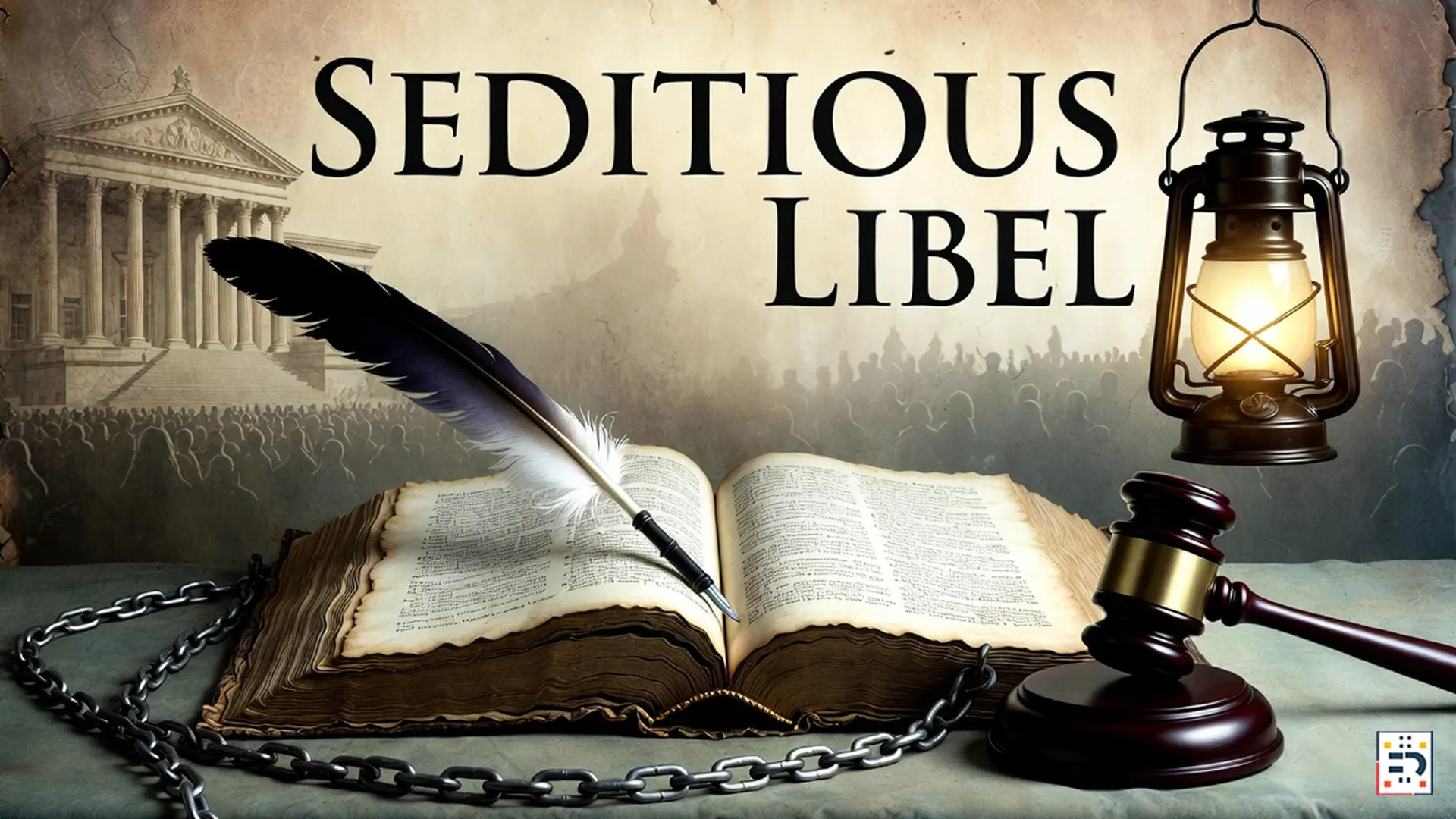Breaking: Trump’s Sedition Death Threat Against Democratic Lawmakers
On November 20, 2025, President Donald Trump made a shocking accusation. He declared that six Democratic lawmakers committed “seditious behavior, punishable by DEATH.” The statement exploded across social media within minutes. Moreover, it reignited fierce debates about free speech and executive power.
The lawmakers had simply urged military personnel to refuse illegal orders. Nevertheless, Trump claimed they should face arrest and trial. This controversy has revived a legal concept many Americans thought belonged in history books: seditious libel.
Trump targeted Senators Elissa Slotkin (D-MI) and Mark Kelly (D-AZ). He also named Representatives Jason Crow (D-CO), Maggie Goodlander (D-NH), Chrissy Houlahan (D-PA), and Chris Deluzio (D-PA). Notably, all six are military or intelligence community veterans. They had reminded service members of their constitutional duty to refuse unlawful orders.
Trump’s response came swiftly on Truth Social. He wrote: “SEDITIOUS BEHAVIOR AT THE HIGHEST LEVEL.” Furthermore, he declared: “Each one of these traitors to our Country should be ARRESTED AND PUT ON TRIAL.” Forty minutes later, he escalated further: “SEDITIOUS BEHAVIOR, punishable by DEATH!”
Representative Jason Crow reported receiving death threats immediately afterward. Meanwhile, Senate Minority Leader Chuck Schumer issued a stark warning. He said Trump was “lighting a match in a country soaked with political gasoline.”
The Democratic Party condemned the threats as “absolutely vile.” However, the controversy raises deeper questions. What exactly is seditious libel? Why does understanding its dark history matter now more than ever?
What Is Seditious Libel? Understanding the Legal Definition
First, we must distinguish between two related but fundamentally different legal concepts. Understanding this difference is crucial to evaluating Trump’s accusation.
Seditious Conspiracy vs. Seditious Libel
Seditious conspiracy appears in federal law as 18 U.S.C. § 2384. This charge involves two or more people conspiring to overthrow the U.S. government by force. Additionally, it covers conspiracies to levy war against the government. It also includes forcibly preventing the execution of federal laws.
Importantly, this charge requires proof of active conspiracy. It also demands evidence of violent intent—not mere words. The penalty carries up to 20 years in prison. Some January 6 Capitol rioters faced this charge. Specifically, members of the Oath Keepers and Proud Boys received convictions under this statute.
Seditious libel, by stark contrast, criminalizes speech itself. Specifically, it targets criticism of the government or its officials. Under English common law, publishing statements criticizing the government was a criminal offense. Even more troubling, truth was not a defense. This is the doctrine Trump’s rhetoric eerily echoes.
Why Seditious Libel Is Fundamentally Different
Seditious conspiracy targets violent plots against the government. In contrast, seditious libel targets words, ideas, and political criticism. The latter represents one of democracy’s most dangerous tools. Throughout history, governments have wielded it to silence dissent and crush opposition voices.
The Dark History of Seditious Libel in America
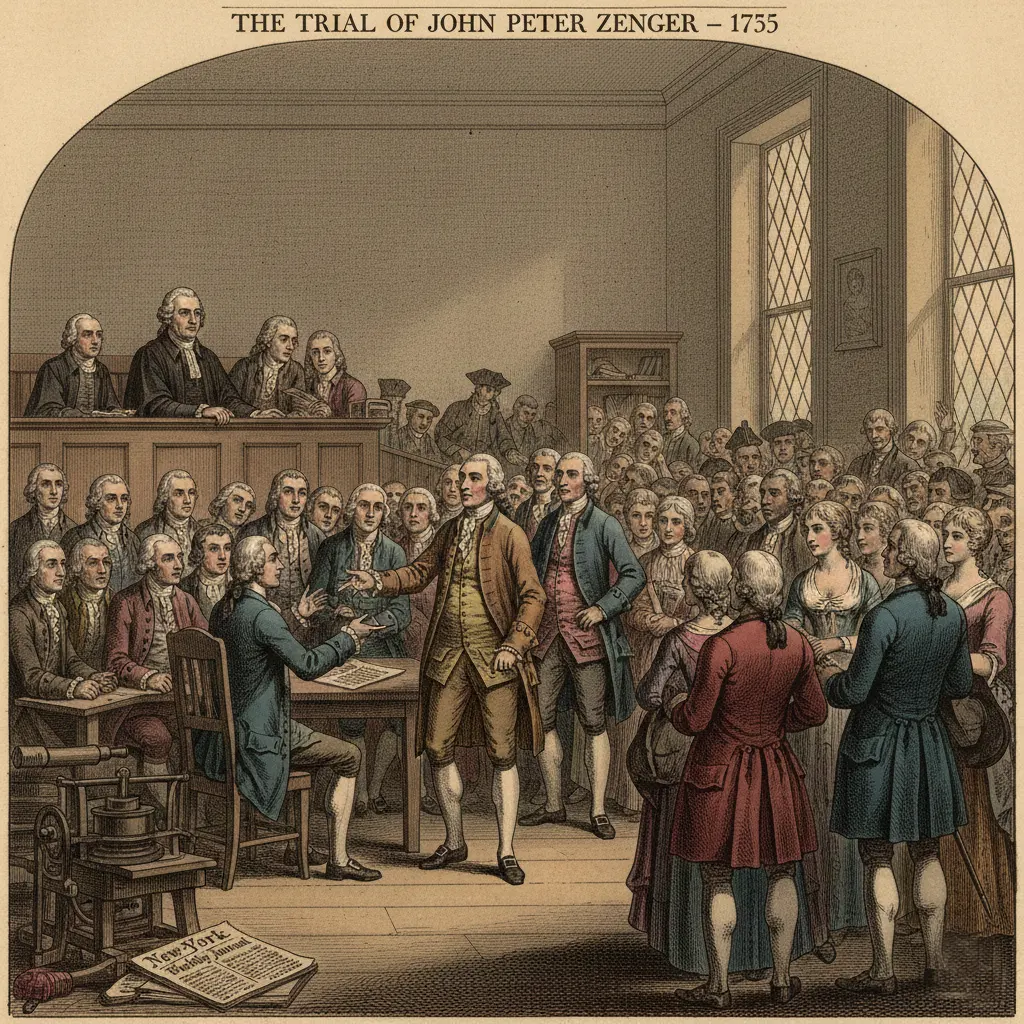
Colonial America and the John Peter Zenger Trial (1735)
The conflict over seditious libel came to a dramatic head in 1735. John Peter Zenger, a printer, published articles criticizing New York’s colonial governor. Authorities arrested him and charged him with seditious libel.
However, a jury acquitted Zenger. This became a landmark moment in press freedom. Nevertheless, it didn’t eliminate seditious libel laws. The legal doctrine continued to threaten free speech for decades.
For more on this pivotal case, see the First Amendment Encyclopedia’s detailed analysis.
The Alien and Sedition Acts of 1798: America’s First Free Speech Crisis
On July 14, 1798, something remarkable happened. Congress passed the Sedition Act more than six years after ratifying the First Amendment. The Federalist-controlled Congress made it a federal crime to publish defamatory matter against the government. This included criticism of Congress, the President, or government policies.
President John Adams and Federalists quickly weaponized this law. They prosecuted political opponents—primarily Jeffersonian Republicans and opposition newspaper editors. Authorities arrested at least 25 people. Courts convicted 11, including newspaper editors and even a congressman.
One Vermont man went to prison for a simple suggestion. He said President Adams had “a continual grasp for power.” That was enough for conviction.
The Act expired in 1801. Thomas Jefferson immediately pardoned all those convicted. Furthermore, he called the law a direct violation of the First Amendment. Today, historians consider this one of the most widely condemned laws in American constitutional history.
Learn more about this period at the Constitutional Rights Foundation.
World War I: The Return of Sedition Laws (1917-1918)
During World War I, sedition laws returned with a vengeance. Congress passed the Espionage Act of 1917. Then came the Sedition Act of 1918. These laws criminalized speech criticizing the war effort. They also targeted criticism of the military or government war bond sales.
The results were devastating for free speech. Socialist leader Eugene V. Debs received a ten-year prison sentence. His crime? Delivering an anti-war speech.
Filmmaker Robert Goldstein also faced conviction. He produced a movie about the American Revolution. The film portrayed British soldiers—America’s wartime allies—negatively. Consequently, he went to prison. Over 2,000 prosecutions resulted from these laws.
These prosecutions revealed a troubling pattern. National security fears quickly overrode constitutional protections. Moreover, authorities weaponized seditious libel against immigrants, labor organizers, pacifists, and political dissidents.
For comprehensive First Amendment history, visit the Freedom Forum Institute.
The Constitutional Turning Point: Brandenburg v. Ohio (1969)
The landmark case that effectively buried seditious libel came from an unlikely source. In 1969, the Supreme Court heard Brandenburg v. Ohio. The case involved a Ku Klux Klan rally in Ohio.
Clarence Brandenburg, a KKK leader, faced conviction under Ohio’s criminal syndicalism law. Authorities charged him with advocating violence at a rally. However, the Supreme Court reversed his conviction. In doing so, they established what legal experts now call the “Brandenburg test.”
The Court ruled that government cannot punish inflammatory speech under most circumstances. The speech must meet three strict conditions. First, it must directly incite imminent lawless action. Second, such action must be likely to occur. Third, the speaker must intend to cause it.
Consequently, merely advocating for violence or lawbreaking is now protected. This applies no matter how offensive the speech. The only exception requires meeting Brandenburg’s stringent requirements. This decision effectively ended the era of seditious libel prosecutions in America.
Read the full decision at Justia.
New York Times Co. v. Sullivan (1964): Further First Amendment Protection
In 1964, the Supreme Court delivered another blow to seditious libel. The case was New York Times Co. v. Sullivan. The Court noted something significant. Although courts never tested the Sedition Act of 1798 in the Supreme Court, “the attack on its validity has carried the day in the court of history.”
This case established a crucial principle. Public officials must prove “actual malice” to sustain libel charges. Mere inaccuracy is not enough. This further protected political speech and criticism of government officials.
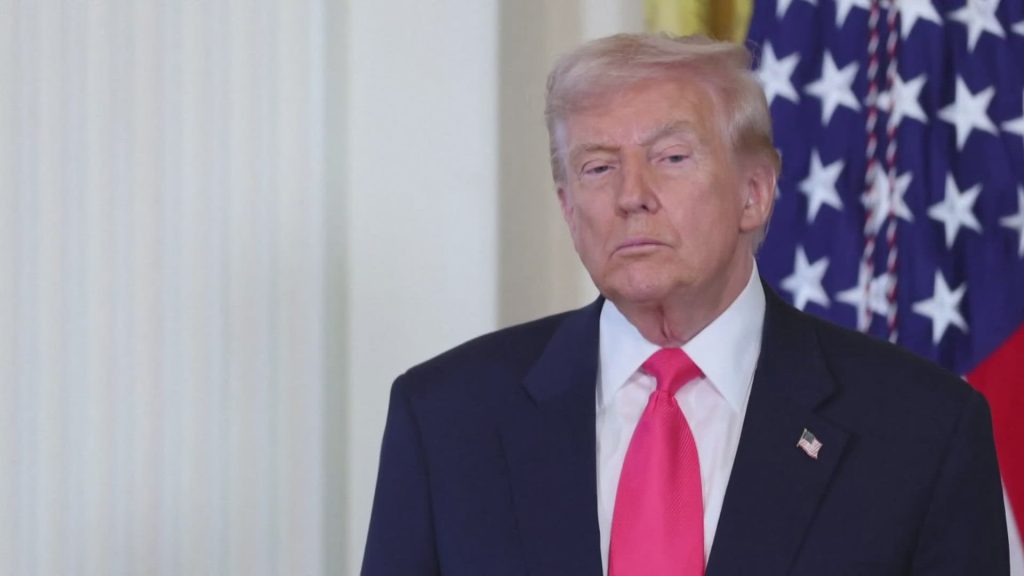
Why Trump’s Sedition Accusation Has No Legal Merit
Legal experts across the political spectrum agree unanimously. Trump’s sedition claims against the Democratic lawmakers have no basis in current U.S. law. Here’s why:
The Lawmakers’ Video Was Constitutionally Protected Speech
The six lawmakers delivered a simple message. They told military and intelligence officers to “refuse illegal orders” that violate the Constitution. Furthermore, they reminded them of their oath to protect and defend the Constitution.
This advice aligns perfectly with existing military law. The Uniform Code of Military Justice (UCMJ) requires service members to refuse unlawful orders. Significantly, this principle became established after the Nuremberg trials.
No Conspiracy to Use Force
Seditious conspiracy charges require specific proof. Prosecutors must demonstrate that defendants conspired to use force against the government. Alternatively, they must prove conspiracy to forcibly obstruct federal law.
However, advising military personnel to follow their legal obligations falls far short. There is no conspiracy, no force & no obstruction.
Seditious Libel Is Unconstitutional
For seditious libel to apply, the government would need to resurrect unconstitutional laws. Courts have repeatedly struck down these laws as violations of free speech. Essentially, Trump’s accusation calls for returning to a legal doctrine that American jurisprudence rejected over half a century ago.
Trump later appeared on Brian Kilmeade’s radio show. There, he clarified that he’s “not threatening death.” Nevertheless, he believes the lawmakers are “in serious trouble.” He added that “in the old days, it was death.” This statement reveals his invocation of historical seditious libel concepts.
For current legal analysis, see resources at Cornell Law School’s Legal Information Institute.
The Broader Pattern: Political Speech Under Threat
Trump’s sedition accusation isn’t isolated. Instead, it fits a broader pattern. Throughout his political career, he has repeatedly threatened political opponents with prosecution.
During the 2024 campaign, he called for prosecuting President Biden. He also targeted Vice President Kamala Harris. Moreover, he suggested Representative Liz Cheney should face a firing squad. Her offense? Investigating his January 6 actions.
White House press secretary Karoline Leavitt denied Trump wanted to execute members of Congress. However, she also argued that lawmakers shouldn’t encourage anyone to defy administration orders. This creates a troubling contradiction.
Senator Elissa Slotkin reported receiving threats instantaneously. Capitol Police placed her on 24/7 security. Additionally, law enforcement stationed officers outside her house.
This pattern raises serious concerns among constitutional scholars. When a sitting president threatens lawmakers with execution for exercising First Amendment rights, consequences follow. Specifically, it creates an atmosphere where others may fear speaking out.
January 6 and Seditious Conspiracy: The Modern Context
Trump’s invocation of sedition carries particular irony. Recently, the Justice Department successfully prosecuted leaders of extremist groups. The charges? Seditious conspiracy related to the January 6, 2021 Capitol attack.
Courts convicted Stewart Rhodes of the Oath Keepers. They also convicted Enrique Tarrio of the Proud Boys. These prosecutions marked rare successful seditious conspiracy cases. Defendants organized armed groups. Furthermore, they used force to disrupt the peaceful transfer of presidential power.
Unlike the Democratic lawmakers’ video, these cases involved actual violent conspiracies. They aimed to overthrow government processes through force.
However, Trump pardoned or commuted sentences for virtually all January 6 defendants upon taking office in 2025. This included those convicted of seditious conspiracy.
For comprehensive January 6 legal coverage, visit Just Security.
The Constitutional Lesson: Why Seditious Libel Must Remain in History
The history of seditious libel in America teaches a crucial lesson. Democracies are most vulnerable when leaders criminalize criticism.
Consider the Sedition Act of 1798. Historians don’t remember it as a necessary security measure. Instead, they view it as one of early America’s greatest constitutional failures. Similarly, the World War I sedition prosecutions represent a dark chapter. Fear overwhelmed civil liberties.
These laws didn’t fall through silence or compliance. Instead, the very speech they tried to suppress defeated them. Journalists continued publishing. Activists kept organizing. Defendants challenged convictions in court. Ultimately, a constitutional framework that protects dissent as essential to democracy prevailed.
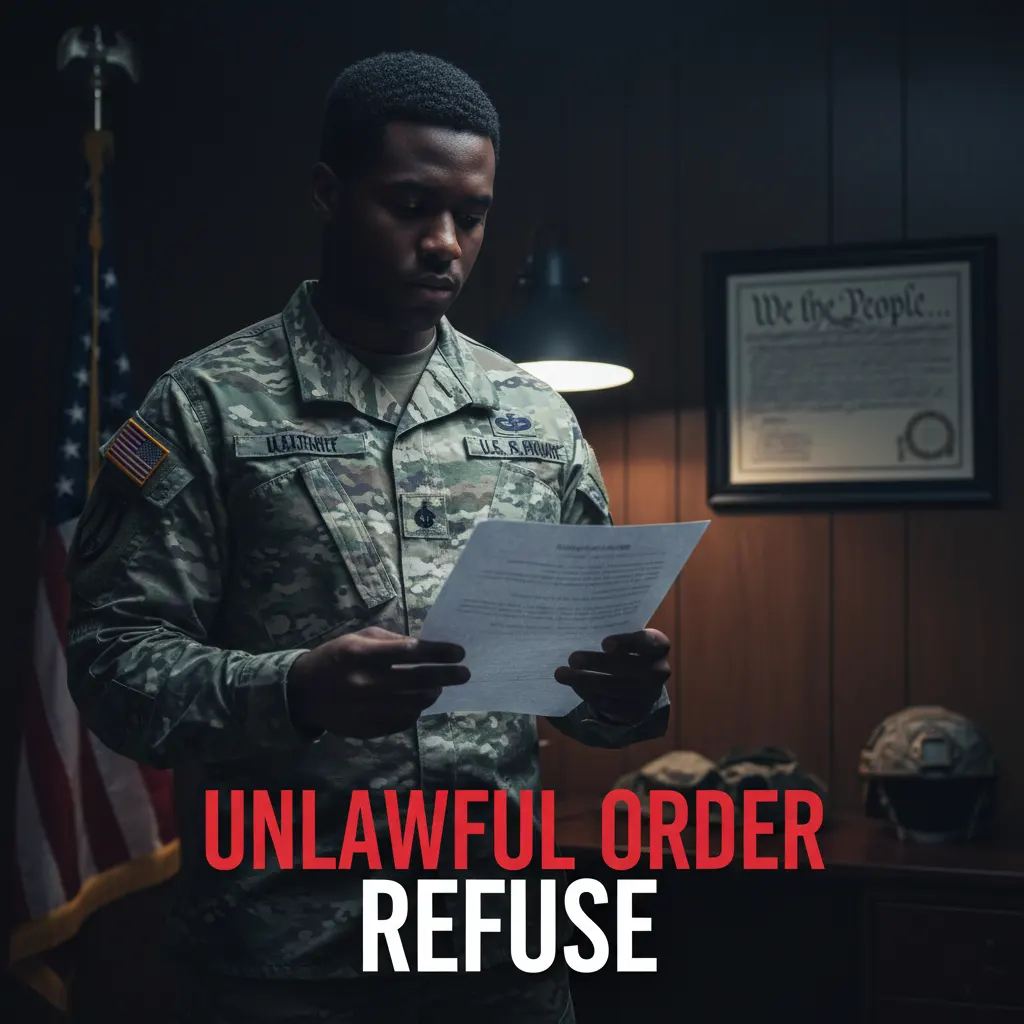
The First Amendment’s Core Purpose
The First Amendment exists for a specific reason. It protects speech that challenges authority. It safeguards questions about policy. Moreover, it even protects urging civil servants to follow the law rather than unlawful commands.
As the Supreme Court recognized in New York Times v. Sullivan, allowing public officers to sue or prosecute for criticism would greatly curtail free speech. Therefore, such protection is fundamental to democracy.
What This Means for American Democracy
Trump accuses lawmakers of sedition for reminding service members of their legal duties. In doing so, he invokes a legal theory American courts have thoroughly rejected. More troubling, he revives a historical pattern. Throughout history, accusations of disloyalty have silenced political opposition.
The six Democratic lawmakers issued a powerful statement. They said, “What’s most telling is that the President considers it punishable by death for us to restate the law.” They added, “Every American must unite and condemn the President’s calls for our murder and political violence.”
The question isn’t just about legal merits. Experts agree Trump’s accusation has no legal foundation. Rather, it’s about whether Americans will defend a fundamental principle. Criticism of government is not treason. Instead, it’s the very foundation of citizenship in a free society.
Expert Opinions and Constitutional Scholarship
Legal scholars and constitutional experts have weighed in unanimously:
Constitutional law professors emphasize that Brandenburg v. Ohio’s protections remain the law of the land. Additionally, First Amendment scholars stress that advocating for legal compliance cannot constitute sedition. Former federal prosecutors point out the absence of any conspiracy, force, or violence. Similarly, military law experts confirm that the UCMJ requires service members to refuse unlawful orders.
For scholarly analysis, visit the Brennan Center for Justice and the American Civil Liberties Union.
Frequently Asked Questions About Seditious Libel
Q: Is seditious libel still a crime in the United States?
A: No, it is not. While seditious conspiracy remains codified in federal law, seditious libel is different. Criminalizing mere criticism of government is unconstitutional under current First Amendment jurisprudence.
Q: What’s the difference between sedition and treason?
A: The Constitution defines treason as levying war against the United States. It also includes giving aid and comfort to enemies. In contrast, sedition involves conspiracy to overthrow the government or oppose its authority by force. However, neither applies to protected political speech.
Q: Can the president prosecute lawmakers for speech?
A: No, the president cannot. The First Amendment protects political speech. This includes criticism of the president. Additionally, the Speech or Debate Clause of the Constitution provides extra protection for congressional speech and debate.
Q: What are illegal orders under military law?
A: The UCMJ requires service members to refuse orders that are clearly illegal. This includes orders violating the Constitution, federal law, or laws of war. Importantly, this principle became established after World War II.
The Historical Legacy and Future Implications
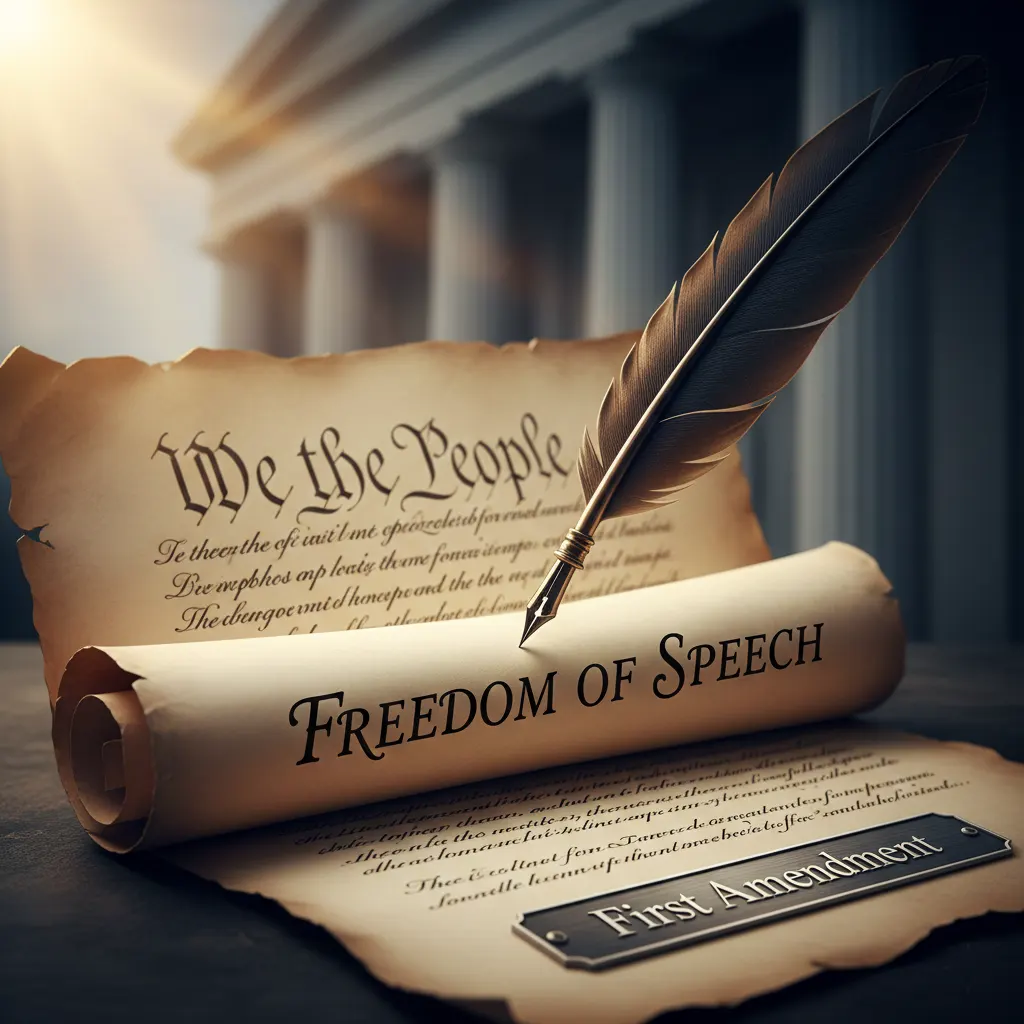
Seditious libel belongs in history books, not in the modern American legal system. Its resurrection as a political weapon should concern every American. Anyone who values the freedom to speak, dissent, and hold power accountable should pay attention.
House Democratic leadership responded forcefully. Minority Leader Hakeem Jeffries, Whip Katherine Clark, and Caucus Chair Pete Aguilar called on Trump to remove his posts. They also urged Republicans to condemn them. Furthermore, they stated they contacted Capitol Police to ensure the safety of threatened members.
Even House Speaker Mike Johnson eventually weighed in. Initially, he declined to criticize Trump. However, he later admitted “the words that the president chose are not the ones that I would use.” Additionally, he stated he doesn’t think these are “crimes punishable by death.”
Defending Free Speech in 2025 and Beyond
As we watch this controversy unfold, the stakes extend far beyond one inflammatory social media post. The invocation of seditious libel—even rhetorically—represents a genuine threat. It endangers the fundamental freedoms that distinguish democracies from authoritarian regimes.
The six Democratic lawmakers exercised their constitutional rights. Furthermore, they fulfilled their duty to uphold military law. That such speech could be labeled sedition worthy of execution reveals something troubling. It tells us less about the lawmakers. Instead, it tells us more about how fragile the line between authority and authoritarianism can become.
History has taught us that criminalizing criticism of government is antithetical to democratic principles. The First Amendment protects dissent not despite it being uncomfortable for those in power. Rather, it protects dissent precisely because challenging authority is essential to self-governance.
The question facing Americans today is straightforward. Will we defend these hard-won constitutional protections? Or will we allow them to erode through threats, intimidation, and the resurrection of discredited legal doctrines from our nation’s darkest chapters?
The answer to that question will define American democracy for generations to come.
#SeditiousLibel #FirstAmendment #TrumpSedition #FreeSpeech #ConstitutionalLaw #PoliticalSpeech #DemocracyMatters #November2025 #LegalAnalysis #USPolitics #TrumpAccusation #FreeSpeechRights #SeditionAct #BrandenburgTest #MilitaryLaw


